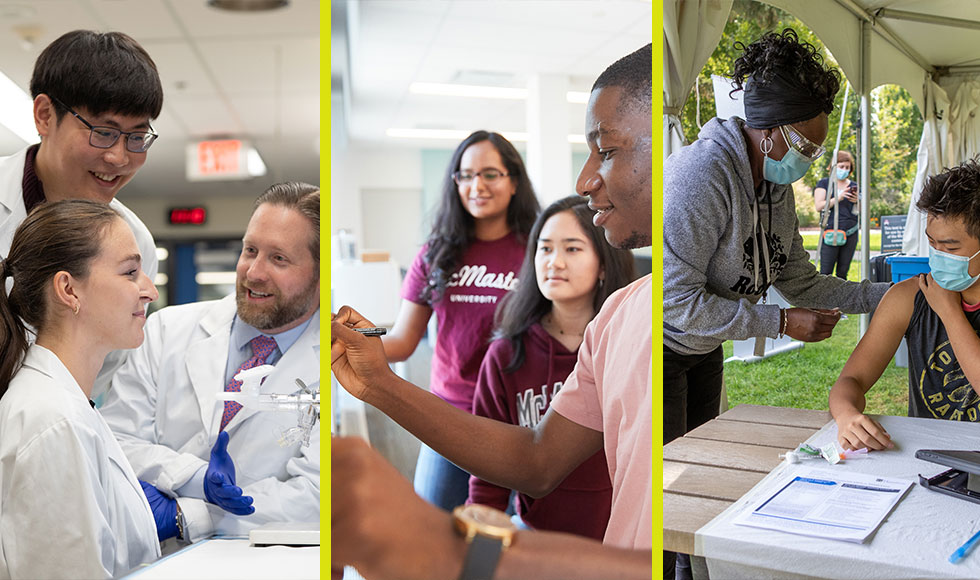Introducing the Global Nexus School for Pandemic Prevention & Response

McMaster University’s pandemic innovation hub is now the Global Nexus School for Pandemic Prevention & Response.
BY Blake Dillon
April 26, 2023
McMaster University’s pandemic innovation hub is now the Global Nexus School for Pandemic Prevention & Response.
“Repositioned as a school within the University, the Global Nexus can better leverage its diverse experts and their teams to not only lead cutting-edge research, but also train the next generation of scientists and scholars,” says Gerry Wright, executive director of the new school.
Building on McMaster’s world-leading training of biomedical researchers and healthcare leaders, the school is developing comprehensive, interdisciplinary programs to bring social scientists, Indigenous scholars, artists, and economists together with clinical and lab scientists to find solutions to emerging public health threats.
The school is offering innovative academic programming at the undergraduate and postdoctoral levels, and will soon offer certificate and micro-credential programs for professionals interested in pandemic response.
McMaster’s board of governors and senate recently approved the Global Nexus School for Pandemic Prevention & Response, and, beginning this fall, a new interdisciplinary minor called ‘the Impact of Infectious Disease on Individuals and Society’ will be available to all McMaster undergraduate students.
“This minor will give undergraduates a holistic learning experience that considers the social, economic, and health impacts of infectious disease crises,” says Lesley MacNeil, education lead at Global Nexus. “By combining knowledge and approaches from many disciplines, students will be well-positioned to emerge as leaders in the fight against infectious disease outbreaks.”
The new academic programming will support the school’s research program, which focuses on infectious disease impacts across the lifespan; the effects of infectious diseases on vulnerable populations; the histories, evidence, contexts, and behaviours relevant to the study of infectious diseases; and new diagnostics, therapies, and vaccines to address emerging pathogens and antimicrobial resistance.
Wright says that the COVID-19 pandemic brought to light the disproportionate effects that infectious diseases can have on different people, depending on age, class, race, gender, ability, and geography, and so the new school’s research teams and educators will continue to collaborate with community members from equity-deserving groups and Indigenous communities.
“The Global Nexus School for Pandemic Prevention & Response will build upon the foundations established by Canada’s Global Nexus for Pandemics and Biological Threats by bridging research, education, and community engagement to ensure that McMaster remains at the forefront of a responsive and resilient future,” he says.


